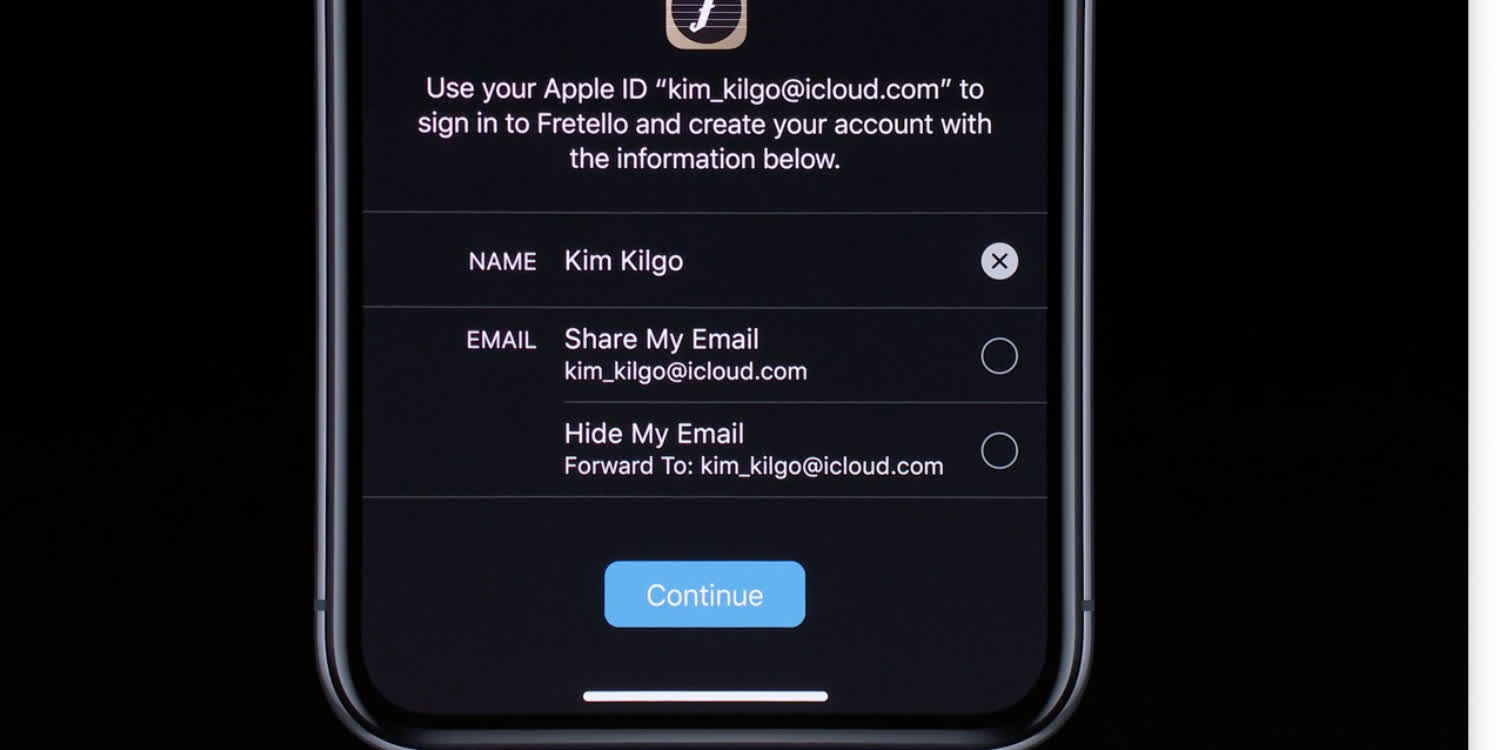US DOJ opens antitrust probe over 'Sign in with Apple' button complaints
In context: Apple seems to have no shortage of antitrust accusations flung at it lately. Earlier this calendar week, the UK's Contest Appeal Tribunal dropped a instance against the Cupertino tech titan brought on by the continuing "Apple Tax" spat with Ballsy Games. Now, the visitor faces scrutiny in the United states of america from the Department of Justice over its alternative sign-in method.
The Information reports that developers began complaining last summer about being forced to employ the "Sign in with Apple" (SIWA) characteristic in their apps if they employed other 3rd-political party authentication measures similar signing in with Facebook, LinkedIn, or Google. The DoJ is interested in finding out if the push gives Apple tree an unfair advantage by making information technology more hard for consumers to switch to rival devices.
According to sources close to the DoJ, some developers using sign-in buttons for Facebook or Google have done away with them considering they did not want to exist forced to add the Apple tree hallmark method. The primary reason for not wanting to utilise SIWA: it's also private.
"Representatives of ii iPhone app developers that complained to DOJ investigators about Apple's requirements told The Information that afterward Apple made its sign-in button mandatory, they removed all sign-in buttons from their app because they didn't desire to include Apple's and potentially lose out on gaining data near their customers."

With the Sign in with Apple tree push, the only information the programmer can access is the user name and email associated with the iCloud account. A unique stable anonymous token is and so produced for future authentications. Users may also opt to hide their electronic mail addresses when clicking the button for the commencement time (above). In this case, SIWA creates a random electronic mail that routes to the associated iCloud address.
By dissimilarity, developers can access much more information when using Facebook'due south and Google'southward authentication methods, including birthdates, hometowns, contacts, and more. For example, take a look at all the user data that Facebook may let apps to inquire for on their Permissions Reference webpage.
It'due south somewhat important to note that apps that do not use a third-party authentication button are not required to utilize SIWA. Only those using these methods have to also include Apple's. This requirement seems to make sense since Apple tree is merely trying to ensure that users have the option to remain private. However, developers see information technology as the company again throwing its weight effectually to stifle competition. We'll have to see what the DoJ has to say about it when it concludes its investigation.
Prototype credit: Kenny Wassus
Source: https://www.techspot.com/news/88735-us-doj-opens-antitrust-probe-over-ign-apple.html
Posted by: palmerwhinsise1961.blogspot.com


0 Response to "US DOJ opens antitrust probe over 'Sign in with Apple' button complaints"
Post a Comment